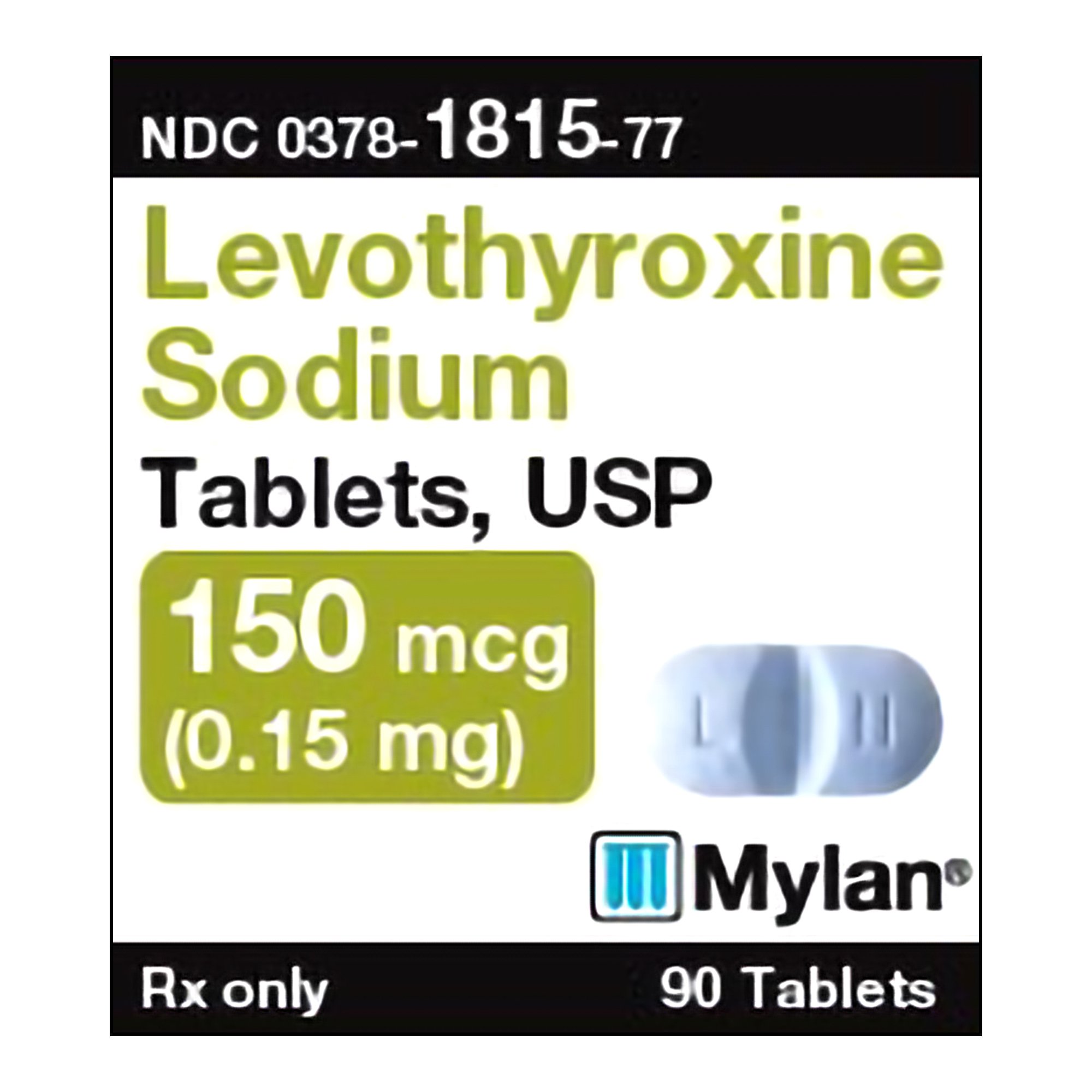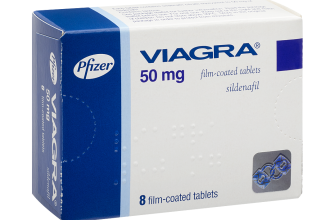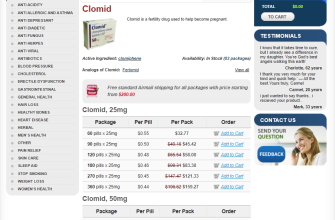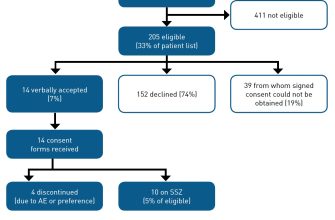For individuals prescribed 150 mcg of levothyroxine, understanding its role is key to managing hypothyroidism effectively. This dosage typically suits those with an established need for thyroid hormone replacement. Ensure consistent daily intake, ideally in the morning, to optimize absorption.
Monitoring thyroid hormone levels is critical. Schedule regular follow-ups with your healthcare provider to adjust dosage if necessary. Blood tests will help maintain the right balance, as dosages may vary based on individual metabolism and health changes.
Be mindful of potential interactions with other medications. Antacids, calcium supplements, and iron products can inhibit levothyroxine absorption. Maintain a gap of at least four hours between these substances and your medication to ensure maximum effectiveness.
Watch for side effects such as increased heart rate, weight loss, or nervousness. If any of these occur, consult your doctor promptly. Staying informed and proactive in your treatment can lead to improved health outcomes.
- Understanding 150 mcg Levothyroxine
- What is Levothyroxine and How Does it Work?
- Mechanism of Action
- Administration and Dosage
- Indications for Prescribing 150 mcg Levothyroxine
- Common Side Effects of 150 mcg Levothyroxine
- Commonly Reported Side Effects
- Responding to Side Effects
- Dosage Guidelines for 150 mcg Levothyroxine
- Interactions with Other Medications and Foods
- Medications to Monitor
- Foods to Consider
- Best Practices for Taking 150 mcg Levothyroxine
Understanding 150 mcg Levothyroxine
150 mcg Levothyroxine is typically prescribed for individuals with hypothyroidism to restore normal thyroid hormone levels. This specific dosage is often chosen based on lab results and the patient’s individual needs. Patients should take Levothyroxine on an empty stomach, ideally 30 minutes to an hour before breakfast, to maximize absorption.
Consistency is key; take the medication at the same time every day. Regular blood tests are necessary to monitor thyroid levels and adjust the dosage if needed. Side effects may include increased heart rate, insomnia, or weight changes. Report any severe reactions to a healthcare provider immediately.
Interactions with other medications can occur. Inform your doctor about all medications, including over-the-counter drugs, to avoid potential conflicts. It’s crucial to follow your healthcare provider’s advice regarding continuous use and dietary considerations to ensure optimal efficacy.
Aim for a balanced diet, as certain foods may affect how well Levothyroxine works. Foods high in calcium or iron can interfere with absorption, so maintain a time gap when consuming such items. Regular follow-up appointments will help tailor your treatment effectively over time.
What is Levothyroxine and How Does it Work?
Levothyroxine is a synthetic form of the thyroid hormone thyroxine (T4) used primarily to treat hypothyroidism, a condition where the thyroid gland doesn’t produce enough hormones. By supplementing the body’s hormone levels, Levothyroxine helps regulate various metabolic processes, including heart rate, energy levels, and body temperature.
Mechanism of Action
Upon ingestion, Levothyroxine is absorbed into the bloodstream and converted into triiodothyronine (T3), the more active form of thyroid hormone. This conversion occurs mainly in the liver and kidneys. Once in circulation, T3 interacts with thyroid hormone receptors, influencing gene expression and metabolic functions at the cellular level.
Administration and Dosage
Most people take Levothyroxine orally, typically in the morning on an empty stomach to enhance absorption. Dosage varies based on individual needs, usually starting at a low level and adjusted according to thyroid hormone levels in the blood. Regular monitoring is critical to maintain the appropriate hormone levels and avoid symptoms of both under-treatment and over-treatment.
Following these guidelines ensures effective management of thyroid hormone levels, promoting overall health and well-being.
Indications for Prescribing 150 mcg Levothyroxine
Levothyroxine 150 mcg is primarily prescribed to treat hypothyroidism, a condition where the thyroid gland does not produce enough hormones. Patients with low thyroid hormone levels experience symptoms like fatigue, weight gain, and depression. This dosage is suitable for individuals who require significant hormone replacement to reach optimal thyroid function.
Beyond hypothyroidism, this medication may be utilized in the management of thyroid nodules and for patients who have undergone thyroidectomy. In such cases, levothyroxine helps suppress the growth of nodules and maintains hormone balance following surgery.
Levothyroxine is also indicated for the treatment of goiter, an enlargement of the thyroid gland. By stabilizing hormone levels, it can aid in reducing the size of the goiter and alleviate associated symptoms.
In patients with certain types of thyroid cancer, particularly following surgical intervention, 150 mcg may be prescribed as part of a long-term management plan. The goal is to inhibit the growth of residual cancer cells and prevent recurrence.
Healthcare professionals may recommend monitoring thyroid function tests regularly to ensure that the dosage effectively meets the patient’s needs. Adjustments can be made based on these results, facilitating personalized treatment for optimal health outcomes.
Common Side Effects of 150 mcg Levothyroxine
Taking 150 mcg of levothyroxine can lead to various side effects. Understanding these is crucial for effective management of your health while on this medication. Most side effects are mild but can vary in intensity based on individual responses.
Commonly Reported Side Effects
| Side Effect | Description |
|---|---|
| Weight Changes | Weight loss or gain may occur as the body adjusts to hormone levels. |
| Insomnia | Difficulty falling or staying asleep is a frequent complaint. |
| Increased Heart Rate | Some individuals report a racing or irregular heartbeat. |
| Anxiety | Feelings of nervousness or anxiety can arise. |
| Heat Intolerance | Sensitivity to heat and excessive sweating may develop. |
Responding to Side Effects
Monitoring your response to levothyroxine is key. If side effects become bothersome or worsen, consult your healthcare provider. Adjustments to dosage or medication management may be necessary. Regular follow-ups can help in maintaining optimal thyroid function and minimizing adverse effects.
Dosage Guidelines for 150 mcg Levothyroxine
Begin with a dose of 150 mcg daily, taken in the morning on an empty stomach at least 30 minutes before breakfast. This practice enhances absorption.
Individual response to levothyroxine varies, so monitor thyroid hormone levels regularly. Adjustments may be necessary based on these results.
- For adults diagnosed with hypothyroidism, the typical starting dose ranges from 1.6 to 1.8 mcg per kilogram of body weight. For patients over 50 or those with cardiovascular issues, a lower starting dose of 50-100 mcg is recommended.
- In the case of thyroid cancer or suppression therapy, a higher dosage may be required, and the doctor will determine the appropriate amount after thorough evaluation.
Take levothyroxine consistently without fluctuations in timing to maintain stable blood levels. If a dose is missed, take it as soon as remembered, but skip it if it’s almost time for the next dose. Avoid doubling doses.
Drug interactions can impact effectiveness. Inform the healthcare provider about all current medications, including over-the-counter drugs and supplements, particularly those containing calcium, iron, or antacids.
Adjustments might also be necessary during pregnancy or significant changes in weight. Regular check-ups with healthcare providers ensure optimal management of thyroid function.
Always consult with a healthcare professional before making any changes to your dosage regimen.
Interactions with Other Medications and Foods
When taking 150 mcg levothyroxine, it’s crucial to be aware of potential interactions with other medications and certain foods. Proper management of these interactions can enhance the effectiveness of your treatment.
Medications to Monitor
- Antacids: Avoid taking antacids containing aluminum, magnesium, or calcium within 4 hours of levothyroxine, as they can impede absorption.
- Iron Supplements: Iron can reduce the absorption of levothyroxine. Separate dosing by at least 4 hours.
- Hormonal Contraceptives: Some hormonal contraceptives may increase levothyroxine requirements. Monitor thyroid function regularly.
- Antidepressants: Medications like sertraline may interact with levothyroxine, affecting thyroid hormone levels. Consult your healthcare provider for adjustments.
- Antiseizure Medications: Drugs such as phenytoin and carbamazepine can lower levothyroxine effectiveness. Regular blood tests will help manage your dosage.
Foods to Consider
- Soy Products: Soy can interfere with hormone levels. Limit intake when on levothyroxine.
- Fiber-Rich Foods: A high-fiber diet may affect absorption. Space fiber intake from your medication by several hours.
- Coffee: Consuming coffee within 30 minutes of taking levothyroxine can hinder absorption. Wait at least half an hour before having your coffee.
Always consult with your healthcare provider before making any changes to your medication or diet to ensure optimal thyroid management. Regular monitoring and clear communication will help maintain the best treatment outcomes.
Best Practices for Taking 150 mcg Levothyroxine
Take your levothyroxine on an empty stomach, ideally 30 to 60 minutes before breakfast. This enhances absorption and maximizes the medication’s effectiveness.
Use the same brand and formulation for your medication each time to maintain consistent dosing. Different brands may have variations in strength and effectiveness.
Swallow the tablet whole with a full glass of water. Avoid crushing or chewing, as this can alter the medication’s release and absorption rate.
Keep a consistent schedule. Try to take your medication at the same time every day to help establish a routine and avoid missed doses.
Avoid taking calcium and iron supplements within four hours of your levothyroxine. These can interfere with absorption and reduce its effectiveness.
Inform your healthcare provider about any other medications, supplements, or herbal products you’re taking. Some may interact with levothyroxine and affect how it works.
Monitor your thyroid hormone levels regularly. Follow your doctor’s instructions on lab tests to ensure your dosage remains appropriate.
Be vigilant for any symptoms of under- or over-treatment, such as fatigue, weight changes, or mood swings. Report any concerns to your healthcare provider promptly.
Store levothyroxine in a cool, dry place away from direct sunlight. Ensure it is kept out of reach of children and pets.
If you miss a dose, take it as soon as you remember, but skip it if it’s almost time for your next dose. Never double up to make up for a missed one.










